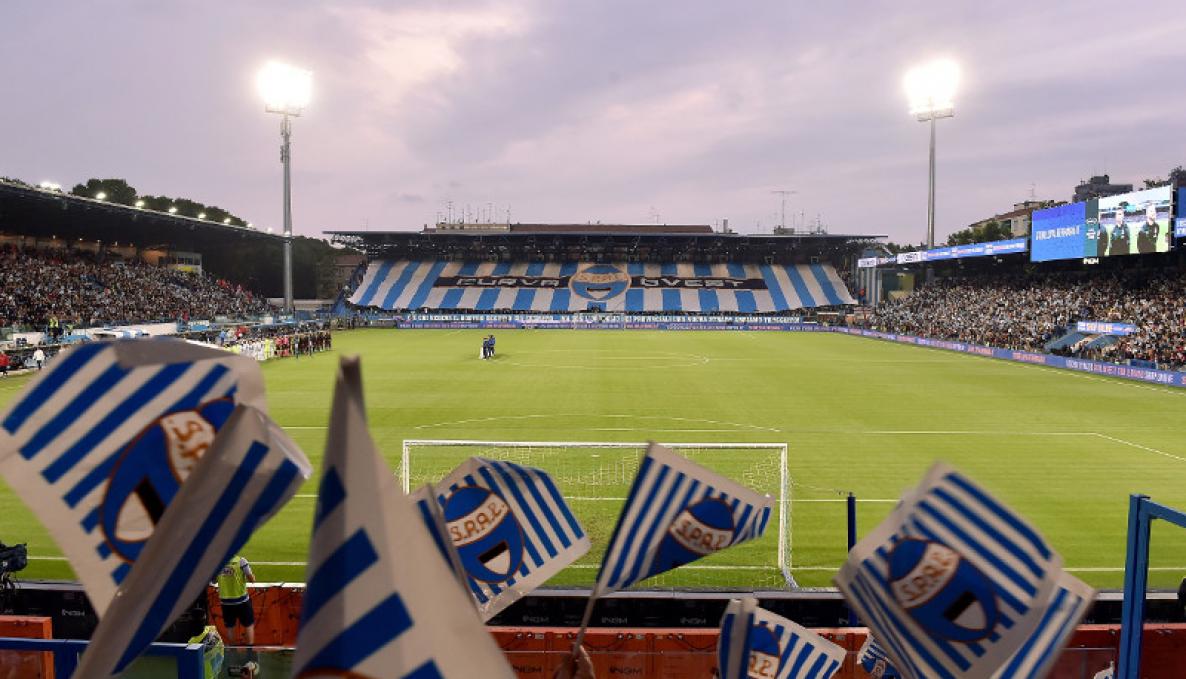SPAL Ferrara joined Sant’Anna School LIFE TACKLE project to improve environmental sustainability in football matches introducing first advert made from recycled plastics

SPAL Ferrara football club has joined the EU co-funded project LIFE TACKLE as its eighth member. The LIFE TACKLE project is coordinated by the Institute of Management with the support of the Union of European Football Association (UEFA). LIFE TACKLE reflects the role football clubs can play to safeguard our environment and reduce carbon emissions from all aspects of their operations including reducing energy, food waste, and use of recyclable materials such as cans, paper, card, and plastics.
“SPAL has joined the project to make sure the best practices are followed and developed in more sustainable way. At our Paolo Mazza stadium, a limited amount of resources will be used, and waste collection will be improved – said Director General Andrea Gazzoli – We think the best way to achieve sustainability is to avoid waste. Our plan is to achieve a climate-neutral stadium. We want to promote positive behaviour and raise awareness of sustainability best practice by engaging fans, match organisers and the wider community.”
The LIFE TACKLE initiative is expected to be completed by June 2020. A campaign aimed at football fans to raise awareness about the environmental impact will contain guidance and promotional media assets. The campaign offers solutions to plan active travel options to stadiums on matchdays and deliver communications through banners and ads from recycled plastics as implemented by SPAL on 25 January 2020 (football match between Spal and Bologna).
“SPAL became the eighth partner to commit to the LIFE TACKLE initiative which targets carbon neutrality. During the football match between Spal and Bologna on 25 January 2020, they pledged to reduce gas emissions and avoid 936 kg of carbon dioxide which is the amount produced for domestic (per 60 sqm) heating over 47 days.”



